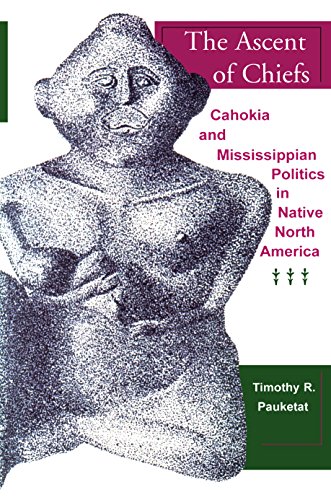
By Manisha Sinha
During this entire research of politics and beliefs in antebellum South Carolina, Manisha Sinha deals a provocative new examine the roots of southern separatism and the factors of the Civil struggle. hard works that painting secession as a struggle for white liberty, she argues as a substitute that it was once a conservative, antidemocratic stream to guard and perpetuate racial slavery.Sinha discusses a number of the significant sectional crises of the antebellum era—including nullification, the clash over the growth of slavery into western territories, and secession—and deals an enormous reevaluation of the circulation to reopen the African slave exchange within the 1850s. within the approach she finds the significant position performed via South Carolina planter politicians in constructing proslavery ideology and using states' rights and constitutional conception for the safety of slavery. Sinha's paintings underscores the need of integrating the historical past of slavery with the normal narrative of southern politics. in basic terms by way of bearing in mind the political value of slavery, she insists, do we arrive at an entire realizing of southern politics and the enormity of the problems confronting either northerners and southerners at the eve of the Civil battle.
Read or Download The Counterrevolution of Slavery: Politics and Ideology in Antebellum South Carolina PDF
Best science & medicine books
New PDF release: Theoretical Roots of US Foreign Policy: Machiavelli and
This quantity explores the explanations why American leaders from the 1700s onwards often undertake regulations of unilateralism. Thomas M. Kane provides clean factors for America’s invasion of Iraq and defiance of overseas agreements, which move a lot deeper than traditional opinions of specific presidents to check the genuine importance of the September eleven assaults.
This formidable publication presents a theoretical rationalization of ways prehistoric Cahokia grew to become a stratified society, and eventually the head of local American cultural fulfillment north of Mexico. contemplating Cahokia when it comes to type fight, Pauketat claims that the political consolidation during this zone of the Mississippi Valley occurred really without notice, round A.
Unconscious Crime: Mental Absence and Criminal by Joel Peter Eigen PDF
A sleepwalking, homicidal nursemaid; a "morally vacant" juvenile poisoner; a guy pushed to arson by means of a "lesion of the will"; an articulate and poised guy on trial for attack who, whereas accomplishing his personal protection, undergoes a profound character swap and turns into a wild and delusional "alter. " those individuals are no longer characters from a secret novelist's vibrant mind's eye, yet particularly defendants who have been attempted on the outdated Bailey, London's primary felony court docket, within the mid-nineteenth century.
Download e-book for kindle: Observations and Predictions of Eclipse Times by Early by J.M. Steele
Eclipses have lengthy been obvious as vital celestial phenomena, no matter if as omens affecting the way forward for kingdoms, or as important astronomical occasions to aid in deriving crucial parameters for theories of the movement of the moon and sunlight. this is often the 1st publication to gather jointly all almost immediately recognized documents of timed eclipse observations and predictions from antiquity to the time of the discovery of the telescope.
- Parliaments in Contemporary Western Europe, Vol. 2: Parliaments and Pressure Groups in Western Europe
- Paul Ricoeur: The Promise and Risk of Politics
- The Price of Doubt (International Library of Philosophy)
- Zur Aktualität von James Coleman: Einleitung in sein Werk
- Passion, Politics, and Philosophie: Rediscovering J.-P. Brissot
- The Emergence of Peer Competitors: A Framework for Analysis
Extra resources for The Counterrevolution of Slavery: Politics and Ideology in Antebellum South Carolina
Example text
In the 1831 Fort Hill address, Calhoun would try to defend himself from the accusation that he did not believe in majority rule, claiming that no one could have higher respect for that ‘‘maxim’’ than he did. ’’ State veto of sectionally unequal laws was thus a ‘‘safe’’ and ‘‘constitutional’’ remedy. Otherwise the majority would have ‘‘all the power that could be desired to subject the labor and property of the minority’’ to their will. While Calhoun’s notion of absolute state sovereignty justified interposition by a single state, it was contradicted by his assertion that after a state veto, the supreme power to decide the question at issue would lie with the Constitution-amending authority, three-fourths of the states.
18 the political ideology of slavery Prominent planter politicians were able to influence public opinion at the local level as well as the official course of the state. The state senate, under the leadership of such future nullifiers as John Ramsay, Miller, and Seabrook, presented an antitariff report and resolutions that recommended that the state should approach the federal government as a ‘‘sovereign’’ to demand the repeal of tariff laws. Moreover, it dragged in the question of slavery, stating that there could ‘‘be no reasoning, between South Carolina and any other government’’ on this subject.
The federal census of 1820 revealed the slower population and economic growth of the slave South. The panic of 1819 had hit the South hard, especially the older seaboard states. South Carolina, after a prolonged cotton boom between 1790 and 1820, entered into a period of economic stagnation made severe by soil erosion, unparalleled out-migration of population, overproduction of cotton in the fresher lands of the Southwest, and a precipitous decline in the price of cotton. But rather than blaming these developments, nullifiers like Hayne claimed that the federal ‘‘system of restrictions ’’ imposed on the trade of southern staples was responsible for the economic downturn.



